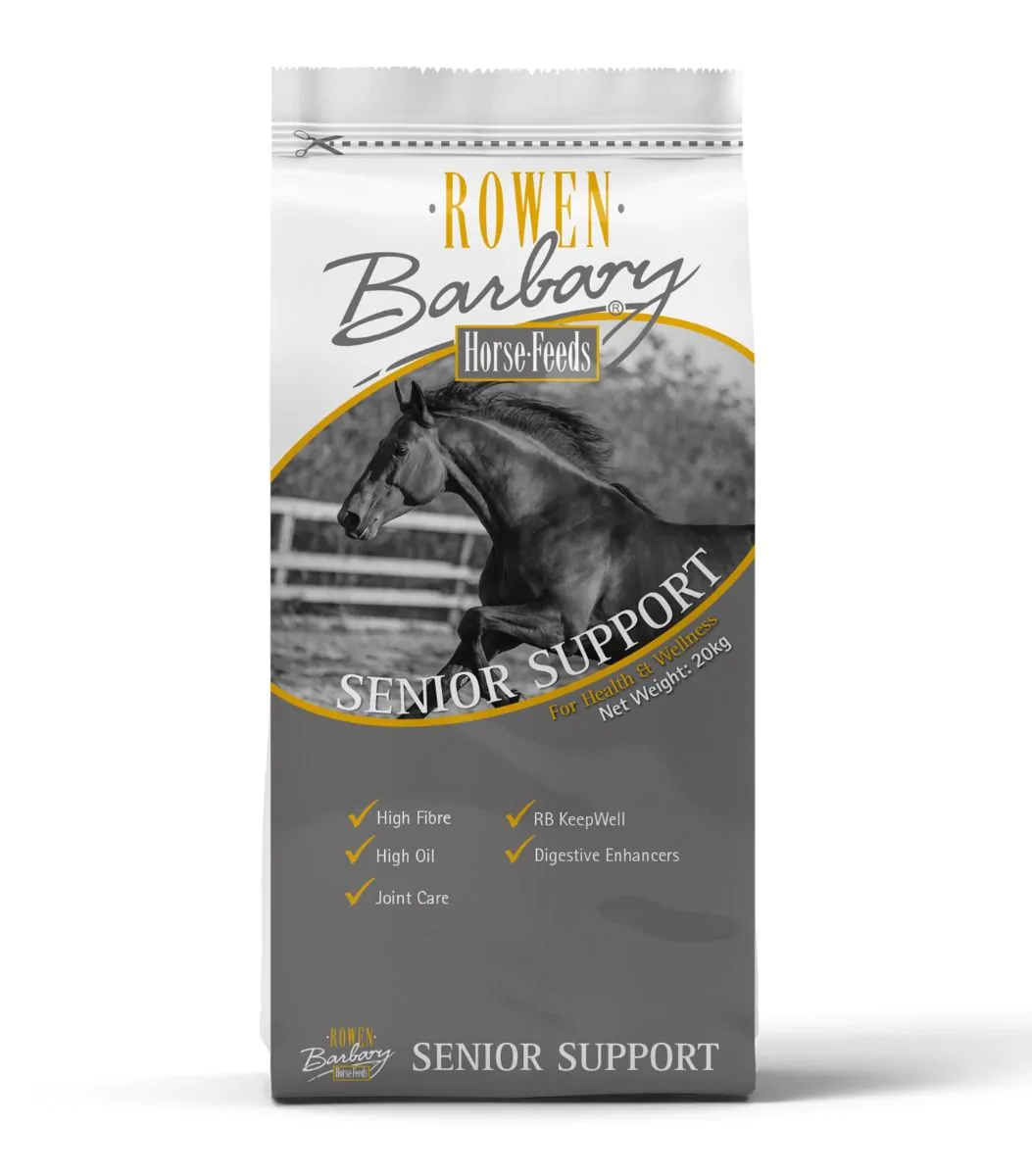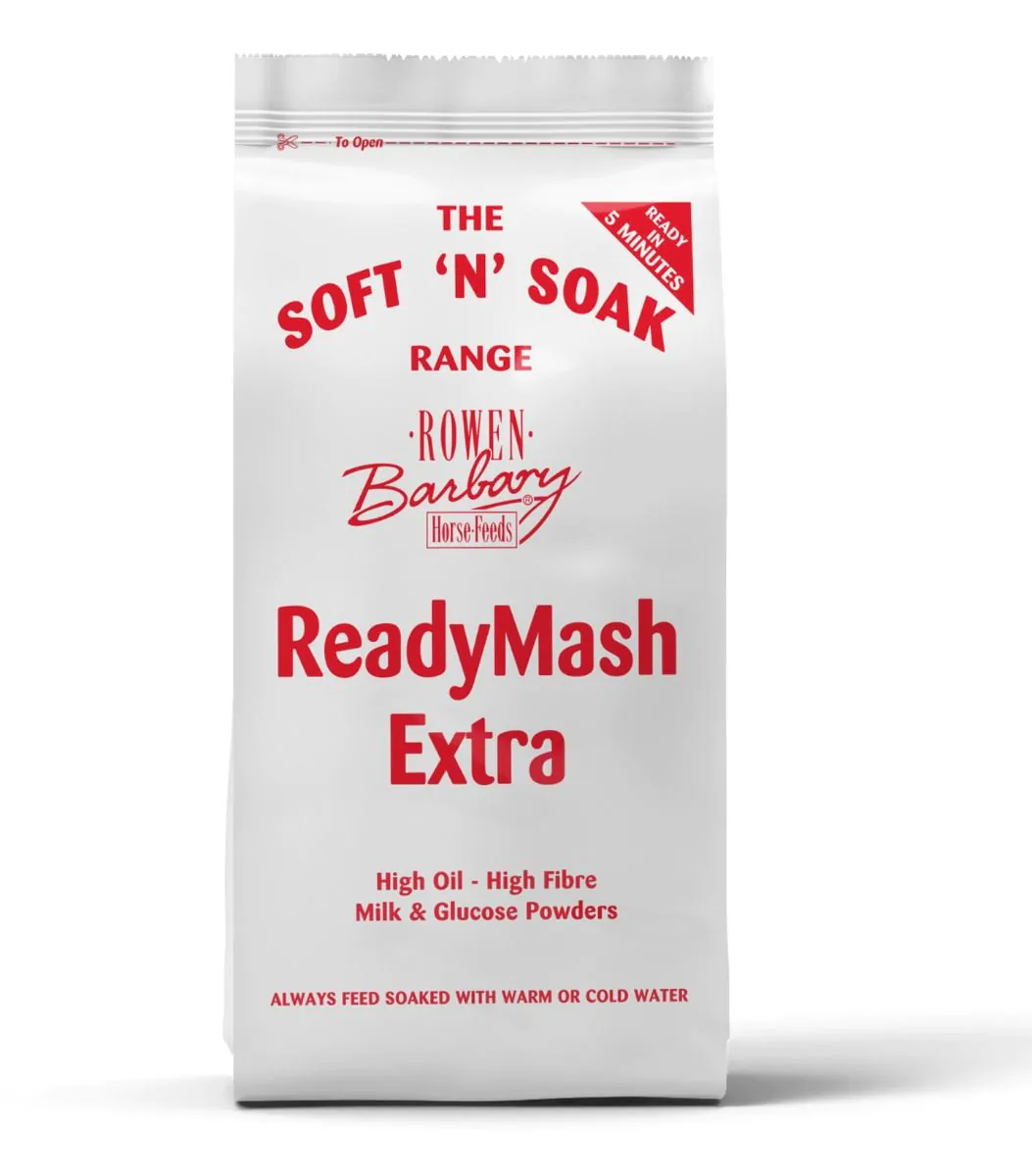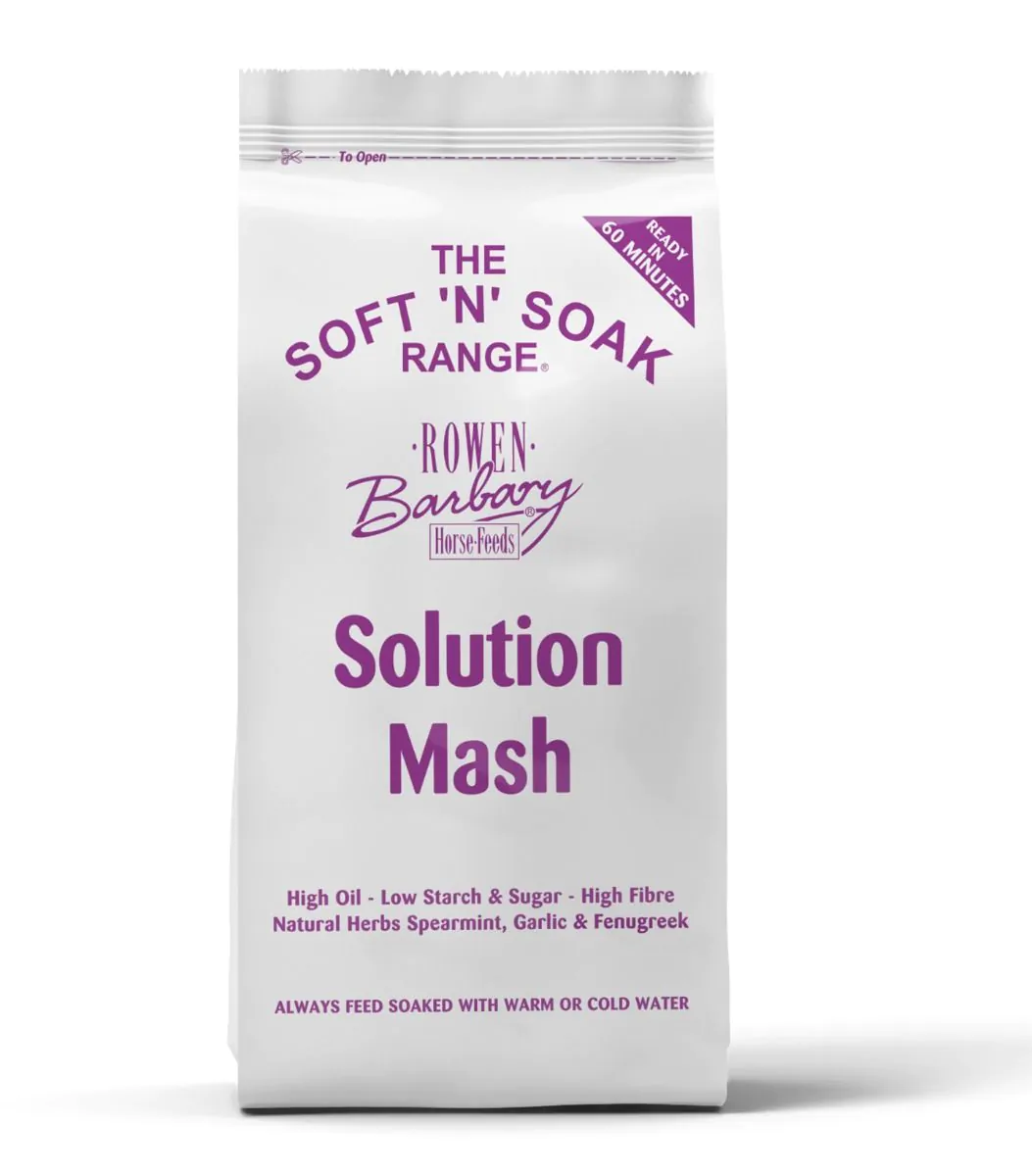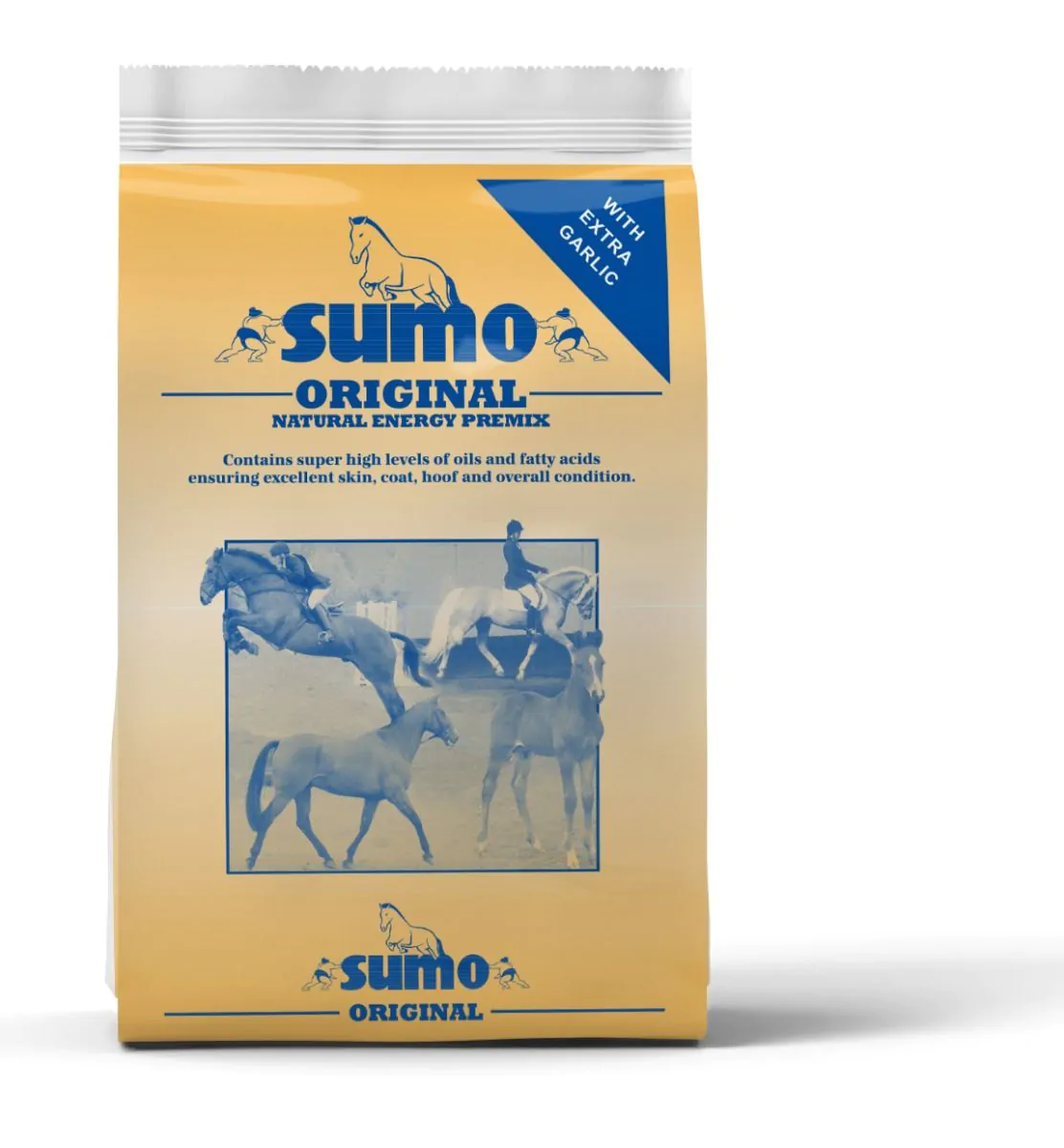- 28th August 2019 by Rowen Barbary
Feeding The Senior Horse This Winter
With dark nights and plummeting temperatures winter can be a difficult time, but as horses grow older they have more trouble handling cold weather so need extra care and attention to make sure they stay healthy and comfortable.
Once your horse is wormed and vaccinated it is important that your horse has a general health check ensuring that there are no dental problems and hooves are sound.
FEEDING FIBRE
Whether stabled or living out fibre should be the forefront of any horses diet and there are many options available to you to increase the fibre content of the horses diet if grass is limited including hay, haylage, chaffs and high fibre feeds.
By providing your horse with ad-lib fibre this will help maintain a healthy hindgut and body temperature in cold weather, as heat is produced through the digestion of feed. The greatest amount of heat is released when microbes in the hindgut digest high fibre feeds, which help keep the horse warm.
As temperature drops maintenance energy requirements increase, increasing even further in the presence of wind and even more so in both wet and windy weather. As a general rule for every ten degrees below freezing you can increase the horses hay ration by another 10 percent.
POOR DENTITION
Impaired chewing ability due to loss of teeth or poor tooth condition is one of the main reasons older horses start to lose weight. Symptoms of teeth problems include laboured chewing, quidding where horses will often drop half chewed food and loss of appetite. If you have noticed that your veteran has any of these symptoms it is important to first get your Equine Dental Technician to examine the horse and to introduce fibre replacers into the diet.
ReadyFibre Mash from Rowen Barbary is made out of 100% high digestible fibre and is ideal to use as a fibre replacer to help maintain the fibre levels in the diet. Taking just 5 minutes to soak to form a soft textured mash it is very palatable for veterans who have previously had trouble chewing long stem fibre and it can be used as a complete fibre replacer in the diet.
When feeding fibre replacers it is recommend to split the feed into as many small meals a day as possible, 3 or 4 portions given at regular intervals through the day will help keep the digestive system healthy.
WEIGHT MANAGEMENT
Fibre alone is usually insufficient to supply the energy demands for a horse to maintain its body weight. Oils or fat supplemented diets are an excellent way of providing the horse with the additional calories required for improving and maintaining condition with products such as Rowen Barbary Senior Support designed specifically to help improve health and wellness in the older horse.
Containing a blend of Linseed and Soya Oil Senior Support is designed to provide the extra calories required by the older horses to help ensure excellent overall condition is maintained. Special attention has been given to help support joint health, with an equal ratio of Glucosamine and MSM added to help restore joint function and mobility, alongside Turmeric and Cracked Black Pepper to aid bio-availability.
EQUINE METABOLIC SYNDROME (EMS)
The dietary management of a veteran with EMS, which includes horses with Cushing's disease (also known as PPID) that are especially prone to laminitis, should be based on a low starch and sugar diet that contains less that 12% non-structural carbohydrates (NSC) on average per feed to help control the blood insulin levels and help prevent the risk of laminitis developing.
A high fibre diet should be fed choosing stalkier hay that offers a lower nutritional value and it is a good idea to consider soaking it before feeding as it has been found that soaking hay for up to an hour can eliminate 56% of its water-soluble carbohydrates. Cereal and molasses free with under 1% sugar Rowen Barbary Solution Mash has been specifically formulated for horses that need a higher calorie diet for conditioning and controlled weight gain, whilst being suitable for feeding to horses prone to EMS.
TOP TIPS FOR VETERANS
- Six month dental check
- Regular flu and tetanus vaccinations
- Light exercise when possible
- Regular worming programme
- Adequate shelter and appropriate rugs
- Annual veterinary examination recommended

About Rowen Barbary
All manufacturing at Rowen Barbary is carried out in a state of the art mill located in the heart of the Shropshire countryside. We use only the highest quality ingredients sourced, where possible, from local farms before they are blended by our dedicated team in our UFAS audited mill.
Rowen Barbary also conforms to BETA NOPS guidelines with raw materials & finished feeds regularly laboratory tested to ensure that every bag of feed continues to meet not only ours, but also your high standards.
We Recommend...





